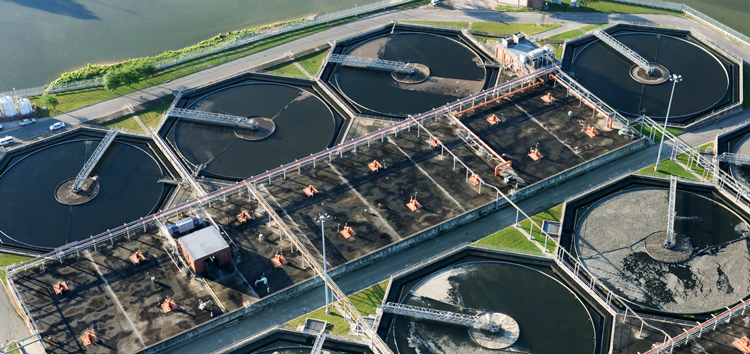
Egypt taking major strides towards green growth, SDGs..Recommended future actions
Advancing towards a green economy has received significant traction as part of Egypt’s commitment to ...

The European Union (EU) is providing a grant of €30 million that is co-financed by a €41.3 million loan from the European Bank for Reconstruction and Development (EBRD) for the construction of a greenfield wastewater treatment facility in Jordan’s Al Ghabawi on the outskirts of the capital, Amman.
The new facility will replace the existing one in Ain Ghazal, which is harming the environment and causing a nuisance to the surrounding communities.
The Al Ghabawi facility will treat septage collected from areas in Amman that are not connected to the sewerage network. This will help eliminate odour, noise pollution and traffic problems due to septic tank truck movements around the current facility in Ain Ghazal.
Jordan is one of the world’s poorest countries in terms of water resources, and dry climate conditions have created severe water shortages. And with the country’s population continuing to grow rapidly, alongside the influx of 1.3 million Syrians living outside of refugee camps, there is unprecedented stress on existing infrastructure and municipal capacities.
The new wastewater treatment facility will have a capacity of 22,500 cubic meters a day, which will not only replace the existing facility but also provide improved wastewater and sanitation services in the northern municipalities, where services are lacking in capacity and quality.
The financing will also help provide on-site training and employment opportunities for up to 100 unemployed youth and women in the community while the facility is being built.
EBRD President Odile Renaud-Basso said “We are very proud to support the government of Jordan in improving and increasing the capacity of Jordan’s wastewater services through the construction of the Al Ghabawi septic tank facility. This investment will not only provide better services for households not connected to the main system, but it will also support the country’s resilience to the refugee crisis through additional infrastructure capacity while mitigating environmental harm in the surrounding communities.”
European Union Ambassador to Jordan, Maria Hadjitheodosiou said “The Al-Ghabawi wastewater project is not only a wastewater treatment facility; it will set an example on resources’ efficiency and combine the possibility to exploit sludge further in waste-to-energy, as well as the possibility for contributing to composting… Such projects contribute to the improvement of the lives of people living in these communities, and offer opportunities for training and employment, in addition to contributing to Jordan’s efforts for meet its Nationally Determined Contributions (NDCs) in climate change action.”
Minister of Planning and International Cooperation, Zeina Toukan said “I would like to sincerely thank the EBRD for the concessional support extended to this priority project. I would also like to thank the EU for offering this significant grant of €30 million, which provides a more flexible and speedy response to the urgent needs to support investment projects. Indeed, EBRD in Jordan has been a true success story, which translated into concrete projects on the ground supporting key sectors and areas in Jordan.”
Advancing towards a green economy has received significant traction as part of Egypt’s commitment to ...
The US has sustained 403 separate weather and climate disasters in 2024 at total cost ...
The World Bank priced a 10-year euro-denominated benchmark bond maturing in January 2035, raising EUR ...


اترك تعليقا